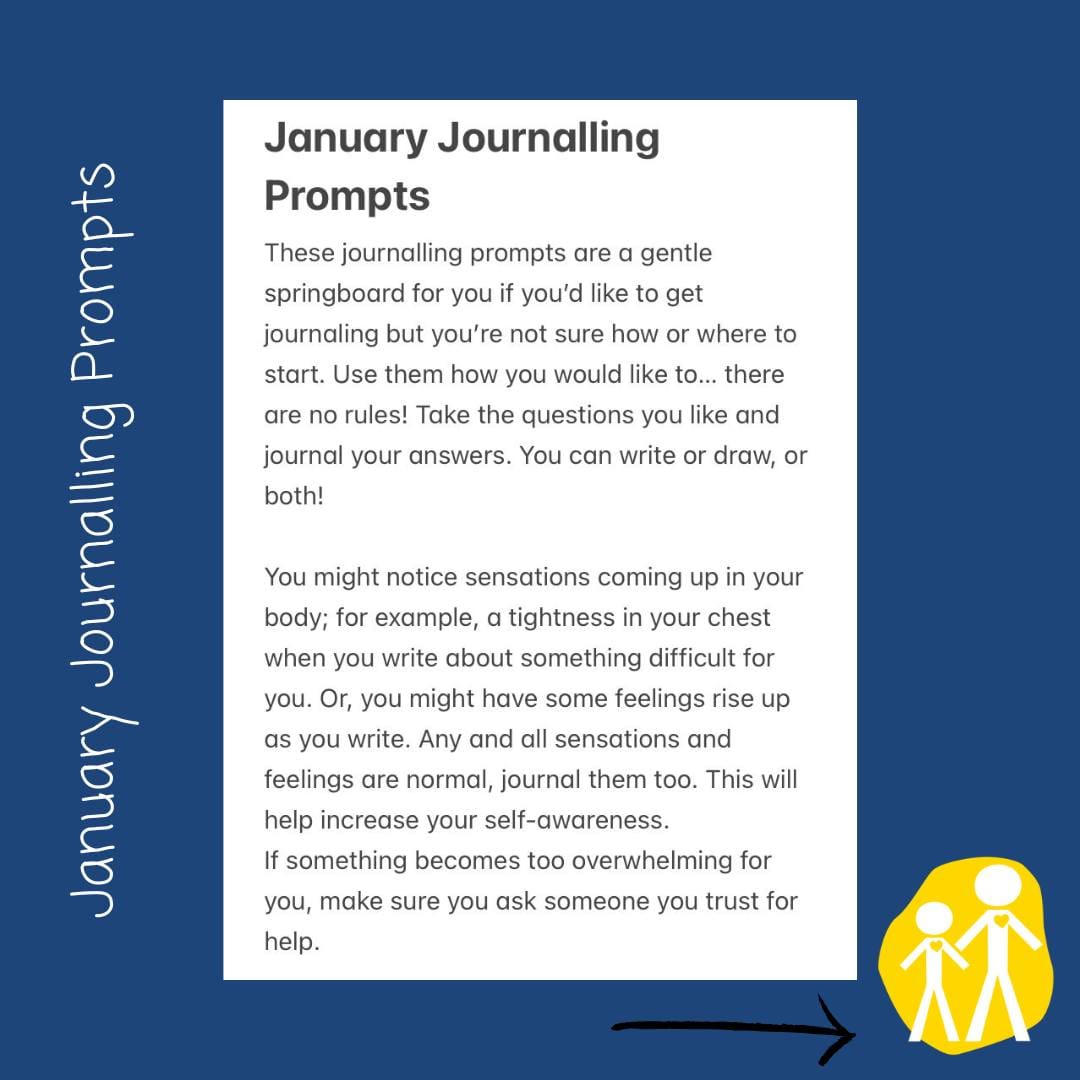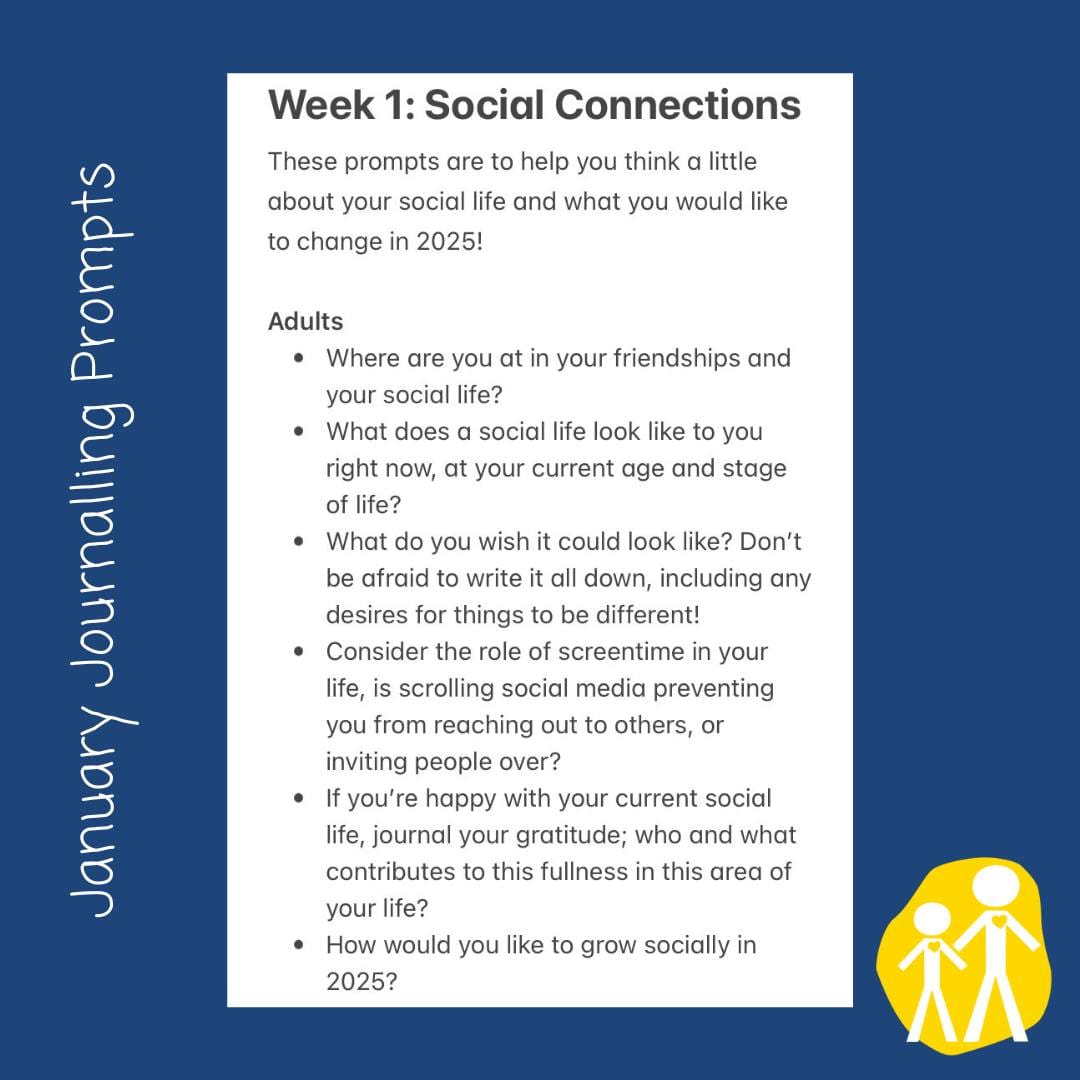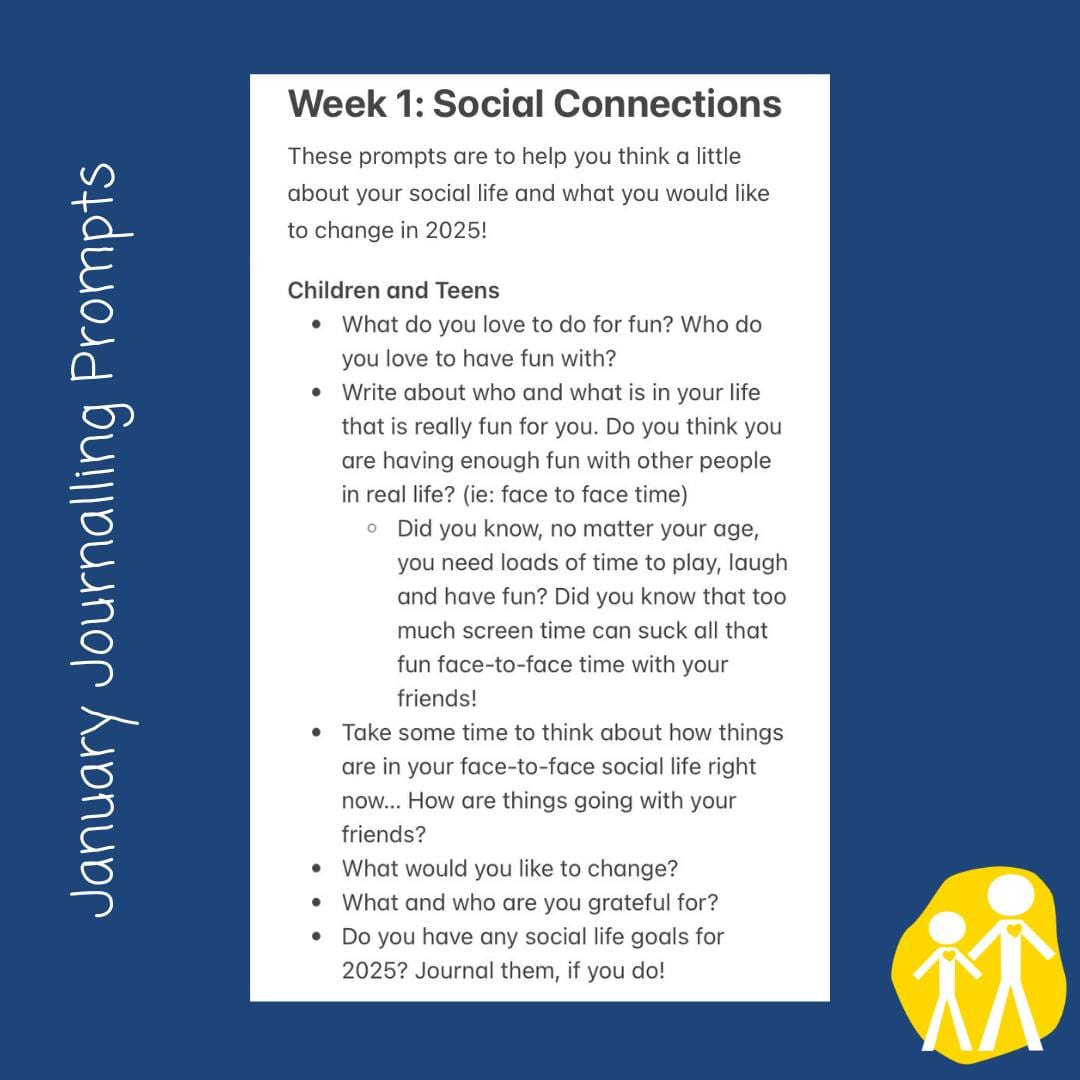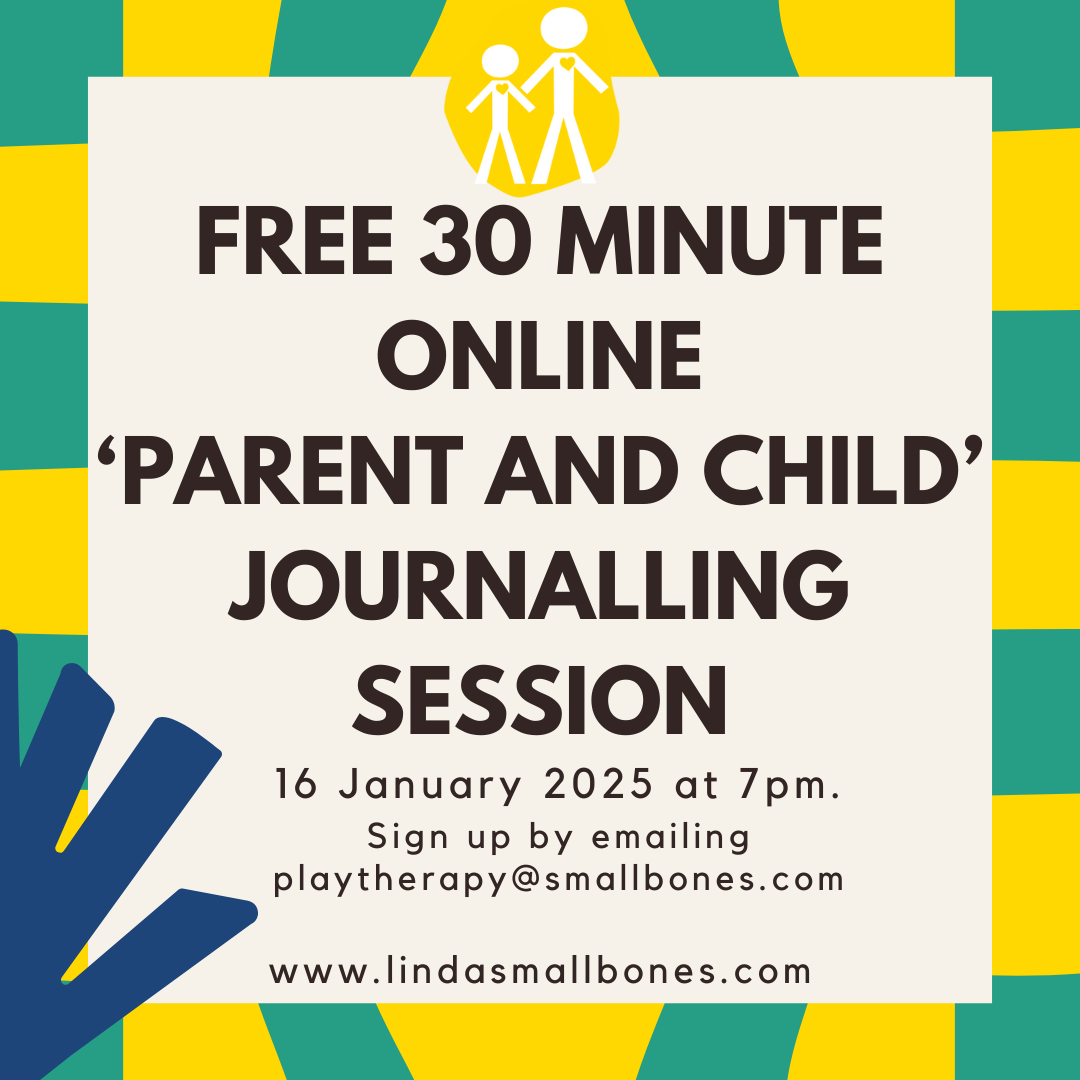Preparation for the Playground!
Explore journaling prompts, tips for fostering friendships, and the importance of play to support social connectedness for parents and children.

Welcome to 2025!!
How are you? How was the rest of your December? Are you ready to pack your children off to school yet?
In thinking about new starts, I wanted to take this month to explore social connectedness, social lives, and friendships—for ourselves as parents and also for our children. I want to offer some thoughts on coaching our children to build healthy social relationships, as well as taking care of our adult social lives.
Below are some journalling prompts coming up over the course of January that will help you reflect on social connection. There are prompts for adults AND for children/adolescents!
Journalling prompts are questions or thoughts that help you think more deeply about a particular topic. You can use your journal to write, draw, or both to answer the questions. There is no wrong answer; it’s simply for your reflection!


Journalling prompts for adults

Journalling prompts for children and teens
January...
The month of new beginnings and possibilities. New starts can seem exciting but also stressful, depending on our perception of the unknown ahead.
According to Jonathan Haidt in The Anxious Generation, social deprivation is one of the four fundamental harms of the digital era. I wrote about the four harms here. Haidt explains that when children moved from a play-based to a phone-based childhood, they lost social connections and entered social deprivation.
Technology cannot fulfill the developmental needs of children—or indeed of adults. COVID-19 taught us this. Despite excellent online education and meet-ups during the pandemic, both education and social lives suffered immensely, and some are still recovering.
There is no substitute for in-person, real-time play for children and adolescents. Even gaming with friends cannot replace the body, mind, and soul's developmental needs in play.

Peter Gray, a research psychologist studying the evolution of play, notes that children today fundamentally lack play. He outlines key characteristics of play:
- Self-controlled and self-directed: Children need opportunities to play without constant adult direction.
- Intrinsically motivated: Play is its own reward; it doesn’t need external incentives.
- Guided by mental rules: Children create and follow their own “rules,” fostering cooperation and boundaries.
- Creative and imaginative: Play always involves an element of imagination.
“Play is where children learn that they are in control of their own life. It’s really the only place where they are in control of their own life. When we take that away, we don’t give them the chance to learn how to control their own life.”
—Peter Gray, TED Talk (16 minutes), 2014 (Watch here)
Play is how children and adolescents build social connectedness with their peers.
How can you support your child in making friends as the school year starts?
- Empower them with confidence: Let them know they are worth knowing and encourage them to make efforts to connect with peers. Encourage them that they can be brave to take the first step in friendships.
- Encourage inclusivity: Suggest they get to know many different classmates and be friendly with everyone. True friendships will naturally develop over time.
- Be patient: Avoid pressuring your child to make close friends quickly. Each child’s social skills evolve at their own pace.

- Listen first: Don’t assume unhappiness unless they share it with you. Avoid solving their friendship issues unless there’s evidence of harm or bullying.
- Create space for unstructured play: Outdoor and unstructured play helps children process their experiences, regulate emotions, and cope with new challenges. Play time will help a child process all the new that is happening in the year, play helps children make sense of their experiences.
For older children who may gravitate towards screens when overwhelmed, encourage physical activities like kicking a soccer ball, swimming, or taking a walk instead.
Dear fellow parents, as you navigate first day jitters of the new school year, I am thinking of you, let me know how it goes!
This free half hour journalling session is designed to help you decide if you would like to sign up for the Parent Child journalling workshop. Even if you have no intention of coming to the workshop, you and your child are most welcome to attend this session. You will learn about two tools you can use to journal how the new year is going so far!


